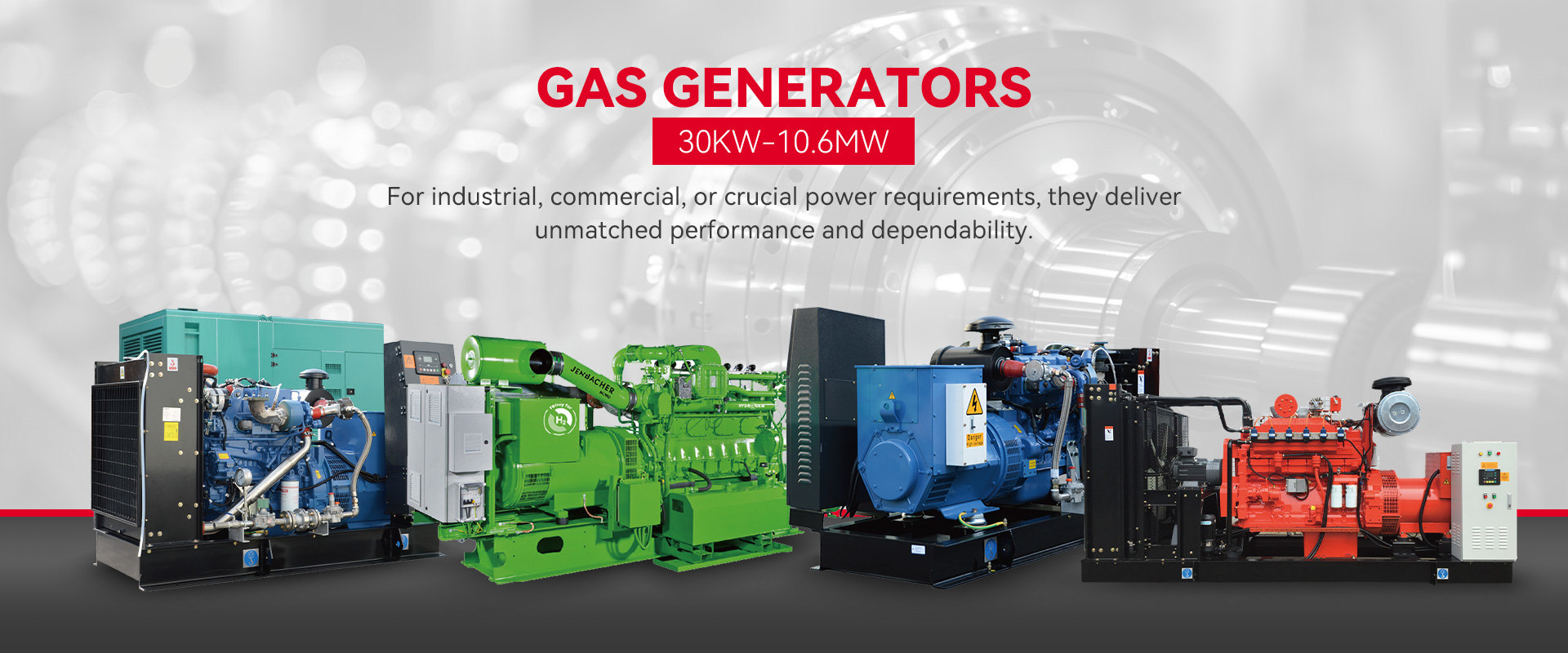In the world of backup power generation, two prominent options jump out: gas and diesel generators. When the power fades, and the requirement for it becomes critical, choosing the right generator set may make a huge difference. But exactly how would you decide between gas and diesel generators? Every one has a unique list of advantages and drawbacks, along with the choice ultimately depends on your specific needs and circumstances.

In this post, we are going to look into the distinctive features, advantages, and drawbacks of natural gas and diesel generator sets, helping you to produce a well-informed decision which option aligns best with your needs.
Propane Generators
Advantages
Cleaner Emissions: One of the greatest attributes of gas main generators could be the lower environmental impact. When gas burns, it creates fewer harmful emissions, like particulate matter, nitrogen oxides, and sulphur dioxide, compared to a diesel genset. This may cause gas generators a greener option for those concerned about air quality and environmental sustainability.
Cost-Effective Fuel: Gas main is often less costly than diesel fuel. The charge savings may be significant in the lon run, specifically if you intend to use your generator frequently. Furthermore, the provision of natural gas tends to be more stable, reducing price fluctuations.
Less Maintenance: Gas generators typically require less maintenance than their diesel counterparts. This results from the cleaner-burning nature of gas, which leads to fewer deposits and soot buildup in the engine, extending the generator’s lifespan.
Quieter Operation: Gas main generators provide quieter operation. This is a vital consideration in areas and settings where environmental noise should be minimized.
Disadvantages
Limited Fuel Storage: A drawback of gas generators is attachment to a continuing way to obtain propane. This can be problematic during extended power outages or in remote locations a frequent natural gas supply will not be available.
Lower Energy Density: Gas main features a lower energy density when compared with diesel, meaning you could possibly need a larger storage capacity or higher frequent refuelling for similar output.
Lower Fuel Efficiency: Gas main generators usually are less fuel-efficient than diesel generators, which may increase operational costs in the long run.
Lower Portability: Due to need for a separate gas main supply, these generators are less portable and versatile than diesel generators.
Diesel Generators
Advantages
High Energy Density: Diesel fuel is renowned for its high energy density. This means diesel generators provides more power in the smaller package, which makes them well suited for applications where space is bound.
Fuel Storage: Diesel generators contain the advantage of to be able to store fuel for extended periods without degradation. This may cause them the best decision for backup power in remote locations and throughout long-term power outages.
Fuel Efficiency: Diesel generators are known for their fuel efficiency, consuming less fuel for the same power output as gas generators. This leads to lower operational costs.
Greater Reliability: Diesel engines are generally better made and sturdy, be a catalyst for greater reliability in demanding conditions. They are often the go-to selection for mission-critical applications.
Disadvantages
Emissions and Environmental Impact: Diesel generators emit higher degrees of pollutants, including nitrogen oxides and particulate matter, which could have side effects on quality of air and public health. Stricter emissions regulations are already carried out to mitigate these issues.
Noise Levels: Diesel generators are often noisier than gas generators, that may be a concern in areas or where noise pollution is often a consideration.
Fuel Availability and value: Diesel fuel could be more expensive and at the mercy of price fluctuations. Additionally, storing large quantities of diesel fuel can pose safety and environmental risks.
Maintenance Requirements: Diesel generators typically want more frequent maintenance as a result of soot and carbon buildup in the engine, which could raise the price tag of ownership.
When to Choose Gas Generators?
Environmental Concerns: If you prioritize environmental sustainability and cleaner emissions, a natural gas generator could be the strategy to use.
Cost Savings: If you’re looking to reduce fuel costs in the long run and possess usage of a trusted natural gas supply, natural gas generators may be more cost-effective.
Quiet Operation: In areas or places where noise levels have to be kept down, gas generators are the quieter choice.
More uncommon Use: Should your generator works as a backup for occasional power outages, the lower maintenance requirements of gas generators make them a convenient option.
When to Choose Diesel Generators?
High Power Requirements: If you need a high-power output inside a compact package, diesel generators, making use of their high energy density, would be the more sensible choice.
Reliability: For mission-critical applications where reliability is paramount, including data centres or healthcare facilities, diesel generators will often be preferred due to their robust and sturdy engines.
Remote Locations: In areas with limited entry to an organic gas supply or during long-term power outages, diesel generators making use of their reliable fuel storage will be the more practical choice.
Frequent Use: In case your generator might find frequent use and also you prioritize fuel efficiency, diesel generators might be less costly over time.
Conclusion
The decision between gas and diesel generators is determined by your distinct requirements, budget, and environmental concerns. Both types of generators have their own pros and cons, as well as the secret is to softly evaluate your needs and priorities before making a choice. Additionally, be sure you understand local regulations and emissions standards which could affect your selection.
More information about biogas generator see our site


